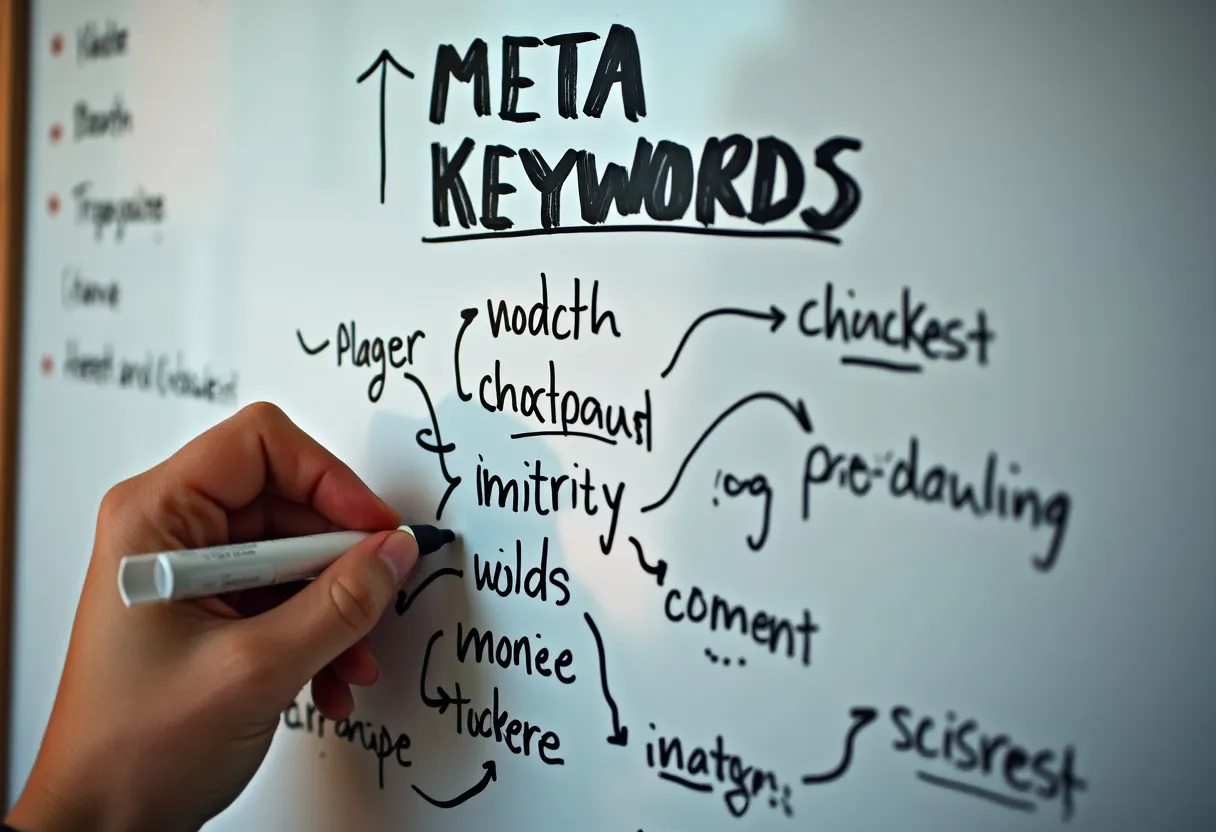Definition
What are Meta Keywords?
Meta keywords are a type of meta tag that appears in the HTML code of a webpage, providing search engines with clues about the page’s content. These tags are not visible to human users but are readable by search engine crawlers. They consist of a list of keywords and phrases related to the page’s content, separated by commas, and are located in the <head> section of the HTML code.
How It Works
Function and Concept
Meta keywords are embedded within the HTML source code of a webpage to inform search engines about the main topics and themes of the page. This helps search engines index and categorize the content more accurately. In the past, meta keywords played a crucial role in determining search rankings. However, with the advancement of search engine algorithms, their importance has significantly diminished.
Practical Use Cases
Although Google does not use meta keywords as a ranking factor since 2009 due to widespread abuse through keyword stuffing, other search engines like Bing might still consider them to some extent. Meta keywords can still be useful as an internal tagging tool for larger enterprise websites and in content management systems (CMS) for internal site search purposes. Analyzing competitors’ meta keywords can provide insights into their SEO strategies and help in identifying relevant keywords.
Why It Matters
Importance in SEO
Despite their reduced impact on search rankings, meta keywords can still help search engines understand the context and main topics of a webpage, which can improve the matching of the page with relevant search queries. They can serve as a starting point for content creation, ensuring that the page’s content aligns with user search intent.
Impact on Website Performance and User Experience
While meta keywords do not directly influence Google’s ranking algorithm, they can indirectly contribute to better site organization and internal search functionality, which can enhance user experience. Monitoring which meta keywords generate traffic and conversions can provide valuable insights into the target audience’s search behavior.
Best Practices
Recommended Methods and Tools
Keyword Selection
Choose meta keywords that accurately reflect the content of the page. Ensure relevance to avoid attracting irrelevant traffic.
Number of Keywords
Use no more than about 10 meta keywords for a single page to avoid keyword stuffing.
SEO Tools
Utilize tools like Google’s Keyword Planner or analyze competitor websites to identify the most relevant and descriptive terms.
Implementation and Optimization Tips
Relevance
Ensure that each meta keyword is relevant to the content of the page to maintain integrity and avoid spamming.
Regular Updates
Update meta keywords regularly to reflect changes in content or user search behavior.
Internal Use
Use meta keywords as an internal tagging tool to improve site search functionality and content organization.
Avoiding Pitfalls
Avoid keyword stuffing, as this practice has led to the devaluation of meta keywords by major search engines. Do not reveal your seed keywords to competitors if your CMS and plugins do not require meta keywords for site search.
Related Terms
Meta Description
The meta description is a brief summary of a webpage’s content that appears in the search engine results. It helps users understand what the page is about before clicking the link.
Meta Redirect
A meta redirect is a method used to automatically redirect a visitor from one URL to another. It is implemented using the <meta> tag in the HTML of a page.
Meta Refresh
Similar to a meta redirect, a meta refresh is used to automatically reload the current page or navigate to a different URL after a specified time interval.
Meta Robots Tag
The meta robots tag instructs search engine crawlers on how to index and follow links on a web page. It can be used to control which pages are indexed and which links are followed.
Meta Tags
Meta tags are snippets of text that describe a page’s content. They do not appear on the page itself but in the page’s code. They include meta keywords, meta descriptions, and other information, aiding search engines in understanding the content.
Open Graph Meta Tags
Open Graph meta tags are used to control how web content is represented on social media platforms. They ensure that shared content appears with the correct title, description, and image, enhancing the social preview.
Open Graph Tags
Open Graph tags, similar to Open Graph meta tags, enable integration between a website and social media platforms, allowing for enriched social media sharing experiences.
Conclusion
In summary, while meta keywords have greatly diminished in importance due to changes in search engine algorithms, they still hold some utility in web development and SEO strategies. They help inform search engines about a webpage’s content, although their influence on ranking has waned. Employing best practices such as relevance, selective keyword use, and regular updates can maximize their beneficial use. Additionally, related terms like meta description, meta robots tag, and Open Graph tags play significant roles in enhancing search engine understanding and social media sharing.



